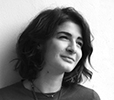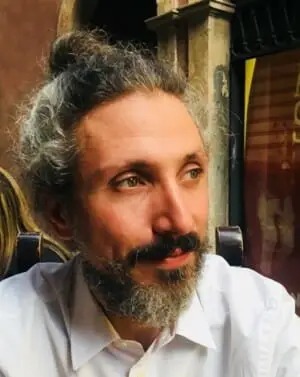Studying at the University of Verona
Here you can find information on the organisational aspects of the Programme, lecture timetables, learning activities and useful contact details for your time at the University, from enrolment to graduation.
Academic calendar
The academic calendar shows the deadlines and scheduled events that are relevant to students, teaching and technical-administrative staff of the University. Public holidays and University closures are also indicated. The academic year normally begins on 1 October each year and ends on 30 September of the following year.
Course calendar
The Academic Calendar sets out the degree programme lecture and exam timetables, as well as the relevant university closure dates..
| Period | From | To |
|---|---|---|
| Sem. 1A | Sep 21, 2020 | Oct 31, 2020 |
| Sem. 1B | Nov 9, 2020 | Jan 9, 2021 |
| Sem. 2A | Feb 15, 2021 | Apr 1, 2021 |
| Sem. 2B | Apr 14, 2021 | May 29, 2021 |
| Session | From | To |
|---|---|---|
| Sessione d'esame invernale | Jan 14, 2021 | Feb 13, 2021 |
| Sessione d'esame estiva | Jun 7, 2021 | Jul 24, 2021 |
| Sessione d'esame autunnale | Aug 23, 2021 | Sep 18, 2021 |
| Session | From | To |
|---|---|---|
| Sessione di laurea estiva | Jul 5, 2021 | Jul 10, 2021 |
| Sessione di laurea autunnale | Nov 8, 2021 | Nov 13, 2021 |
| Sessione di laurea invernale | Mar 28, 2022 | Apr 1, 2022 |
| Period | From | To |
|---|---|---|
| Festa di Ognissanti | Nov 1, 2020 | Nov 1, 2020 |
| Festa dell'Immacolata | Dec 8, 2020 | Dec 8, 2020 |
| Vacanze di Natale | Dec 24, 2020 | Jan 6, 2021 |
| Vacanze di Pasqua | Apr 2, 2021 | Apr 6, 2021 |
| Festa della liberazione | Apr 25, 2021 | Apr 25, 2021 |
| Festa del lavoro | May 1, 2021 | May 1, 2021 |
| Festa del Santo Patrono | May 21, 2021 | May 21, 2021 |
| Festa della Repubblica | Jun 2, 2021 | Jun 2, 2021 |
| Vacanze estive | Aug 9, 2021 | Aug 15, 2021 |
Exam calendar
Exam dates and rounds are managed by the relevant Humanistic Studies Teaching and Student Services Unit.
To view all the exam sessions available, please use the Exam dashboard on ESSE3.
If you forgot your login details or have problems logging in, please contact the relevant IT HelpDesk, or check the login details recovery web page.
Should you have any doubts or questions, please check the Enrollment FAQs
Academic staff
 francesco.bianchi@univr.it
francesco.bianchi@univr.it
 bonifacio@teologiaverona.it
bonifacio@teologiaverona.it
 evita.calabrese@univr.it
evita.calabrese@univr.it
 andrea.cavalletti@univr.it
andrea.cavalletti@univr.it
 elena.desilvestri@univr.it
elena.desilvestri@univr.it
 francesco.lupi@univr.it
francesco.lupi@univr.it

Mastrocinque Attilio
 attilio.mastrocinque@univr.it
attilio.mastrocinque@univr.it
 +39 045802 8386
+39 045802 8386
 pieralberto.porcedducilione@univr.it; pierre_pordd@yahoo.it
pieralberto.porcedducilione@univr.it; pierre_pordd@yahoo.it
 045 8028732
045 8028732
 nicola.turrini@univr.it
nicola.turrini@univr.it
 mariarenata.zanchin@univr.it
mariarenata.zanchin@univr.it
Study Plan
The Study Plan includes all modules, teaching and learning activities that each student will need to undertake during their time at the University.
Please select your Study Plan based on your enrollment year.
1° Year
| Modules | Credits | TAF | SSD |
|---|
2° Year activated in the A.Y. 2021/2022
| Modules | Credits | TAF | SSD |
|---|
3° Year activated in the A.Y. 2022/2023
| Modules | Credits | TAF | SSD |
|---|
| Modules | Credits | TAF | SSD |
|---|
| Modules | Credits | TAF | SSD |
|---|
| Modules | Credits | TAF | SSD |
|---|
| Modules | Credits | TAF | SSD |
|---|
Legend | Type of training activity (TTA)
TAF (Type of Educational Activity) All courses and activities are classified into different types of educational activities, indicated by a letter.
History of Philosophy 2 - MODULO II (2021/2022)
Teaching code
4S007315
Teacher
Credits
6
Language
Italian
Scientific Disciplinary Sector (SSD)
M-FIL/06 - HISTORY OF PHILOSOPHY
Period
Sem. 2B dal Apr 4, 2022 al Jun 4, 2022.
To show the organization of the course that includes this module, follow this link: Course organization
Learning outcomes
In addition to providing a general overview of the main authors and schools of modern and contemporary philosophy as essential moments in the history of Western thought, the course aims to train students in the use of their own philosophical terminology and to teach them the critical use of the original text in order to acquire central philosophical problems and concepts. The student will also be able to communicate philosophical arguments to specialists and non-specialists, and to continue his or her studies in the Master's programme.
MODULE 1:
The course aims to provide an introduction to the history of modern philosophy and its terminology, with a focus on critical comparison with the most significant texts as well as the problems and concepts that arise there. The expected learning outcomes are:
- Knowledge: 1) Knowledge and ability to understand the philosophical contexts of modernity (historical-cultural contexts, philosophical traditions); 2) Knowledge and ability to understand the theories of the major authors of the history of modern philosophy; 3) Knowledge and ability to understand the philosophical vocabulary developed in the modern age.
- Skills: 1) Application of the acquired knowledge and understanding to the critical reading and commentary of philosophical texts, possibly in the original or in any case with references to the original, evidenced by the acquisition of an appropriate vocabulary and the ability to identify interpretative problems and propose possible solutions; 2) Development of autonomous judgement and independent reasoning skills; 3) Acquisition of communication skills in the following activities Participating in guided discussions, exposing one's own ideas and defending them with arguments, and possibly presenting short papers/reports; 4) Development of autonomous learning skills through an appropriate methodology of study and interpretation of both texts and contexts.
MODULE 2:
This course aims to introduce students to the history of nineteenth- and twentieth-century philosophy. At the end of the course the student should be able to demonstrate an ability to learn and have knowledge and understanding of the authors and texts covered. In addition to providing a general overview of the main authors and schools of contemporary philosophy, the aim is to train students in the use of their own philosophical terminology and to teach the critical use of the original text, in order to acquire central philosophical problems and concepts.
Program
PREREQUISITES: Knowledge of the history of ancient, medieval and modern philosophy.
COURSE TITLE: Dialectics, Life and Existence. The preeminent directions of contemporary philosophy.
The course will be divided into two parts:
1) The lectures of the institutional part will focus on European philosophy of the 19th and 20th centuries, illustrated through three introductory paths. Within each thematic path, the philosophical profiles of very significant authors of the nineteenth and twentieth centuries will be placed. For the "dialectic": Georg Wilhelm Friedrich Hegel, Karl Marx and Benedetto Croce; for the conceptual binomial "life-nothing": Giacomo Leopardi, Arthur Schopenhauer and Henri Bergson; for "existence": Edmund Husserl, Martin Heidegger and Jean-Paul Sartre. It is possible that, compared to this course, the teacher will present slight variations in the choice of authors to be taken into consideration.
2) The monographic part illustrates a theme particularly relevant to contemporary philosophical thought. The general problem of 'history' is in fact one of the main reasons of the theoretical orientations examined in the institutional part of the course (dialectics, life and existence) and it reappears, with different values, in many twentieth-century discussions. It will be presented on the basis of a short and dense text by Friedrich Nietzsche: On the Usefulness and Harm of History for Life (1874).
TEACHING METHODS:
The course will be taught in accordance with the University's COVID-19 regulations. It will consist of frontal lectures that will be alternated, where possible, with discussions led by the teacher and short reports of the students (optional) on previously agreed topics. The plurality of teaching methods is designed to suit the student, who will be provided with as wide a spectrum of learning opportunities as possible in order to guarantee, in presence or at a distance, the acquisition of both the knowledge and the skills set out in the training objectives.
COMPULSORY REFERENCE TEXTS FOR BOTH ATTENDING AND NON-ATTENDING STUDENTS:
1) G. Cambiano and M. Mori, Tempi del pensiero. Storia e antologia della filosofia, 3. Età contemporanea, Laterza, Roma - Bari 2012 (also other year edition or other textbook to be agreed with the teacher);
2) Teaching material uploaded on the e-learning platform related to the paths on dialectics, life and existence introduced in the institutional part of the course;
3) F. Nietzsche, L'utile e il danno della storia per la vita, Adelphi, Milan 2016 (or other year's edition).
NON-ATTENDING STUDENTS
4) must supplement the study of the texts indicated in points 1, 2 and 3 with additional teaching material relating to the monographic part that the lecturer will make available to them on the e-learning platform.
Bibliography
Examination Methods
Oral examination (face-to-face or by distance learning according to the University's COVID-19 regulations).
The examination will aim at ascertaining the achievement of the twofold educational objectives of the course (knowledge/understanding and ability) with particular attention to the ability to compare the authors dealt with, and will be structured as follows:
1) Institutional part: (autonomous) delineation of a transversal path within contemporary thought: the student will have to demonstrate the possession of information and key notions, the ability to present them in an organic way and to follow their diachronic development. To this end, the student will have to prepare a 10-minute oral presentation dedicated to an in-depth study of a theme, an idea or a concept in three philosophical authors/movements, chronologically distributed so as to cover the two centuries in the programme and at least two different linguistic areas. The in-depth study can (but does not necessarily have to) consist of commenting on selected passages, which should then be sent by email to the lecturer before the exam. Sample dossiers, which are the subject of the first part of the course, will be uploaded on e-learning and students can use them as a model for a course on the same subject, but with significant variations to demonstrate independence of study;
2) Monographic part: answer to one or more questions on Nietzsche's text and thought: the student will have to demonstrate the ability to formulate precise definitions, possibly connecting them to each other, and the acquisition of a solid method of textual analysis.
Each part of the exam contributes equally, therefore 1/2, to the determination of the final grade. Non-attending students must also study the additional didactic material mentioned in point 4.
Type D and Type F activities
Modules not yet included
Career prospects
Module/Programme news
News for students
There you will find information, resources and services useful during your time at the University (Student’s exam record, your study plan on ESSE3, Distance Learning courses, university email account, office forms, administrative procedures, etc.). You can log into MyUnivr with your GIA login details: only in this way will you be able to receive notification of all the notices from your teachers and your secretariat via email and soon also via the Univr app.
Student mentoring
Linguistic training CLA
Gestione carriere
Practical information for students
Documents
| Title | Info File |
|---|---|
|
|
pdf, it, 325 KB, 02/05/23 |
|
|
pdf, it, 212 KB, 02/05/23 |
|
|
pdf, it, 131 KB, 02/05/23 |
Graduation
Documents
| Title | Info File |
|---|---|
|
|
pdf, it, 99 KB, 13/10/23 |
|
|
pdf, it, 101 KB, 10/04/24 |








































